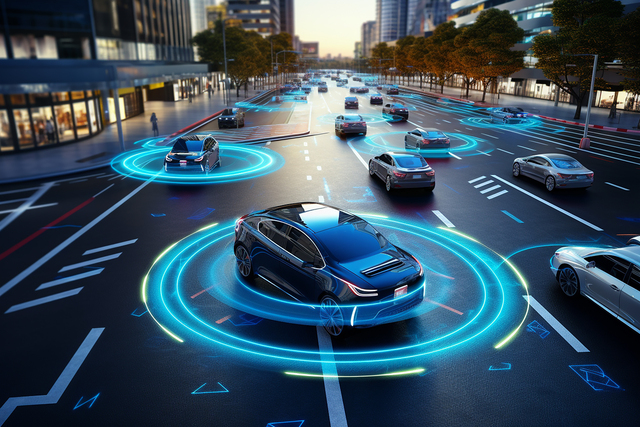Introduction
The automotive industry is undergoing a transformative shift with the rise of connected cars. These vehicles are not just modes of transportation but sophisticated, networked devices that offer enhanced safety, convenience, and efficiency. In this blog, we explore seven exciting innovations in connected cars that are driving the automotive industry forward.
1. Advanced Driver Assistance Systems (ADAS)
Enhancing Safety and Convenience
ADAS technology includes features like adaptive cruise control, lane-keeping assist, and automated parking. These systems enhance driver safety by reducing human error and providing real-time assistance, making driving more convenient and secure.
2. Vehicle-to-Everything (V2X) Communication
Creating a Networked Driving Environment
V2X communication allows vehicles to communicate with each other and with infrastructure like traffic lights and road signs. This technology improves traffic flow, reduces accidents, and supports the development of smart cities by creating a more interconnected transportation network.
3. In-Car Infotainment Systems
Transforming the Driving Experience
Modern infotainment systems offer a seamless integration of entertainment, navigation, and communication features. With voice control, internet connectivity, and personalized settings, these systems enhance the overall driving experience, making it more enjoyable and engaging.
4. Over-the-Air (OTA) Updates
Keeping Vehicles Up-to-Date
OTA updates allow car manufacturers to remotely update the software of connected cars. This ensures that vehicles always have the latest features and security patches, reducing the need for frequent visits to the service centre and keeping the car up-to-date with minimal hassle.
5. Enhanced Cybersecurity Measures
Protecting Data and Privacy
As cars become more connected, cybersecurity is a top priority. Advanced encryption, secure communication protocols, and regular security updates are essential to protect sensitive data and prevent unauthorized access, ensuring the safety and privacy of the vehicle and its occupants.
6. Electric and Autonomous Vehicles
Paving the Way for Sustainable Transportation
The integration of connected technology in electric and autonomous vehicles is revolutionizing the automotive industry. Connected electric vehicles offer efficient energy management, while autonomous cars promise safer and more efficient transportation by reducing human error and optimizing traffic flow.
7. Predictive Maintenance and Diagnostics
Improving Vehicle Longevity
Connected cars can monitor their health and predict maintenance needs before issues arise. This proactive approach to vehicle maintenance reduces downtime, prevents costly repairs, and extends the lifespan of the vehicle, providing a more reliable and cost-effective ownership experience.
Conclusion
The future of connected cars is incredibly exciting, with innovations that promise to revolutionize the way we drive and interact with our vehicles. From advanced driver assistance systems to predictive maintenance, these technologies are driving the automotive industry forward, making cars safer, smarter, and more efficient. As we embrace these innovations, the road ahead looks promising, with connected cars leading the way towards a more connected and sustainable future.
External Resources
- Forbes: How Connected Cars Are Driving The Future Of Mobility
- TechCrunch: The Impact of Connectivity on the Automotive Industry








